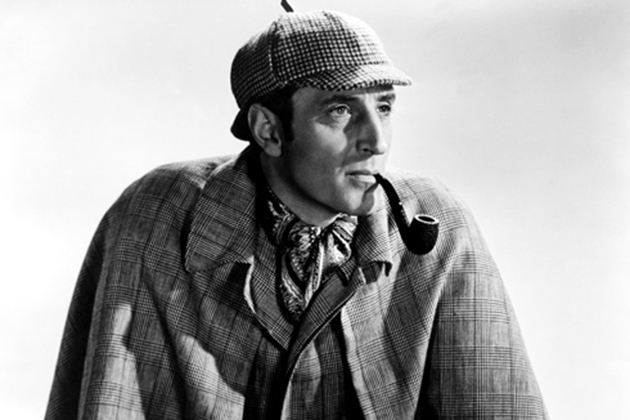What if Sherlock Holmes was tasked with solving major societal problems instead of murder mysteries?
That’s the theme of “Sherlock Holmes, Expert Sociologist,” a course being taught by Matthew Hughey, associate professor of sociology, during this year’s Pre-College Summer @ UConn.
Pre-College Summer gives rising high school juniors and seniors a chance to explore the UConn campus and dive in to a one-week course selected from a range of choices in sociology, statistics, creative writing, plant science and landscape architecture, or digital media.
“I’ve always been a big mystery fan, and I’ve always enjoyed reading the Sherlock Holmes mysteries from Sir Arthur Conan Doyle,” says Hughey, “and the way he wrote this character is he wrote him as kind of a metaphor for the developing scientific revolution and the notion of logic displacing superstition.”
Hughey thought that with the recent resurgence of Sherlock Holmes in pop culture, thanks to movies starring Robert Downey Jr. and a hit show on the BBC, looking through Holmes’s lens might be a good way to teach students the basics of sociology.
“I thought this would be an interesting device to use to be able to teach about common sociological problems, and how many of the same ways that Sherlock Holmes debunks a ‘common sense’ explanation” can be applied to sociological questions, Hughey says.
In Sherlock Holmes stories, the detective uses logic to debunk a widely-held idea – that Hugo Baskerville was killed by a mystical dog in “The Hound of the Baskervilles,” for instance – in favor of one based on data and fact: Baskerville was frightened to death by a dog, but it had been set after him by Mr. Stapleton, an heir to his fortune.
He likens this to certain societal stereotypes that can be deflated with logic.
Hughey, whose research focuses on race, racism, and racial inequality, points to a stereotype of black athletes as an example. “Black athletes don’t run faster because they’re magically or naturally racially superior,” he says. “They have fewer chances to excel in other areas of life because of discrimination, and in certain places and certain nations, like Jamaica, they put every resource they can into track and field, and that’s why they excel in track and field.
“They’re not magical super-athletes,” he adds. “If they were super-athletes, they would dominate in everything, but they don’t.”
Hughey says that, just as Sherlock Holmes uses the logic of deduction to investigate clues to open up a broader picture of the world, sociology can do the same thing.
During the one-week course, which runs July 27-Aug. 2 and Aug. 3-Aug.9, students will examine clues from readings, discussions, video clips, data, and more, to solve four key questions about society:
“What causes people to behave in predictable ways – their character or their environment?” “What do our cultural habits and trends tell us about ourselves and our values?” “How does our class status, gender, and race influence our beliefs that something is either ‘natural’ or ‘normal’?” and “Why does inequality exist?”
The Sherlock Holmes method will help the students uncover root causes of these issues, rather than buying into “easy” explanations.
For instance, says Hughey, Americans may say they value certain things, but their actions betray that.
“If we look at our society and we look at the way we really seem to praise consumption – especially conspicuous consumption of brand items – if we look at our deification of celebrities, if we look at racial and gender and class inequality, what does that tell us about what we actually value, as opposed to what we say we value?” he says. “How might, for example, our stated values of patriotism, and freedom, and justice for all actually be betrayed when we look at the allocation of resources across gender, across race, across class?”
Clues presented throughout the course will help students uncover hidden patterns in society and why those patterns exist.
“By the end of the course,” says Hughey, “students should have a basic sociological understanding of the world, and of why sociological reasoning matters, in the way that Holmes mattered in figuring out what was really going on behind a particular crime or mystery.”
To learn more about Pre-College Summer @ UConn and this course, visit http://precollege-summer.uconn.edu/.



